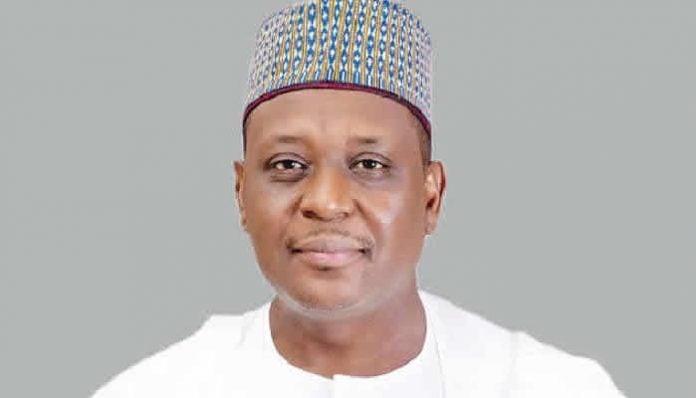On World Suicide Prevention Day, Nigeria’s Federal Ministry of Health and Social Welfare is urging society to take stronger steps toward safeguarding lives and dismantling the stigma around mental health. This global observance, recognised annually, is a powerful reminder that suicide is a preventable tragedy and that hope is within reach for anyone struggling with mental illness.
Why World Suicide Prevention Day Matters
The day, established by the International Association for Suicide Prevention (IASP) in partnership with the World Health Organization (WHO) back in 2003, is dedicated to raising awareness, sparking action, and encouraging international cooperation against suicide. As mental health challenges continue to rise across the world—including Nigeria, Ghana, and throughout West Africa—the significance of this initiative cannot be overstated.
Understanding Nigeria’s Mental Health Landscape
Nigeria, Africa’s most populous nation, loses thousands of people each year to suicide, with many cases never reported due to fears of stigma or discrimination. According to mental health advocates, the silence around suicide often prevents early intervention and support for individuals at risk.
In a heartfelt social media statement, the Federal Ministry of Health acknowledged the pressing need to address the mental health crisis: “Your life matters, and hope is real.” While light-heartedly mentioning it cannot “give you free jollof therapy or a hug through this screen,” the ministry stressed the reality of its care and commitment.
Scaling Up the National Response
Encouragingly, Nigerian authorities are taking concrete steps to respond to this invisible epidemic. Recent policy shifts include:
- National Mental Health Policy: Mental health services are now integrated into primary healthcare, making support more accessible to everyday Nigerians.
- Mental Health Act (2023): This law reinforces rights and protections for people living with mental illnesses, mandates better services, and promotes safeguarding at all levels of care.
- Expanded Awareness and Crisis Support: Ongoing campaigns target mental health stigma and make crisis intervention services more widely available across the nation.
Breaking Down Barriers: The Role of Community and Culture
Experts point out that suicide prevention goes beyond government policy; it’s a shared responsibility involving families, faith leaders, colleagues, and friends. In many Nigerian communities, cultural beliefs and misconceptions contribute to silence around mental health struggles. The ministry notes, “Stigma remains a major challenge,” and tackling it requires compassion and openness from all corners of society.
Dr. Ifeoma Okonkwo, a Lagos-based psychologist, explains: “Healing often starts with a simple conversation. If we can check in on our loved ones, listen without judgment, and encourage seeking help, we open doors for recovery and support.”
“Creating Hope Through Action”: 2025’s Global Call
The theme for World Suicide Prevention Day 2025, “Creating Hope Through Action,” spotlights how small acts—like sending a supportive message, sharing a story, or offering a listening ear—can dramatically impact those in distress. The IASP and its partners, including the World Federation for Mental Health, continue to amplify this message worldwide.
Statistically, suicide rates across Africa remain underreported due to stigma and lack of mental health infrastructure. Nevertheless, progress is being made. Ghana, for example, recently launched community-based awareness programmes in Accra and Kumasi, with local organisations spearheading peer-support initiatives similar to Nigeria’s approach.
Government and Grassroots: Working Hand in Hand
In Nigeria, the Ministry’s renewed commitment is visible in new policy frameworks and the training of healthcare workers on crisis intervention. According to recent reports, health professionals in public facilities now receive specialised education to identify and respond to suicide warning signs, a key step towards saving lives.
Faith-based organisations and NGOs are also playing a crucial role. The Nigerian Network of Psychosocial Support, for instance, has launched helplines and community education drives to empower youth and vulnerable groups with lifesaving information and coping strategies.
Addressing Stigma: The Hard Truth
Despite these gains, the journey ahead is daunting. Stigma—including myths that mental illness is a spiritual punishment or a personal failure—persists in many communities. This social barrier discourages open discussion and deters those in need from reaching out. As the Ministry notes, many suicides go unreported, and the true scale of the problem may be underestimated.
According to a 2019 survey by the World Health Organization, less than 10% of Africans who suffer from mental health disorders receive professional care. This gap further highlights the need for continuous education and intervention.
What Can You Do?
Mental health experts encourage everyone—individuals, families, employers, and community groups—to be proactive:
- Check in regularly with friends, colleagues, and neighbours, especially if they seem withdrawn.
- Listen with empathy, free from judgment or assumptions.
- Share credible resources and encourage anyone struggling to access professional counsel or helplines.
- Support local campaigns and participate in workshops or seminars about mental health.
- Advocate online and offline to normalise conversations about mental health.
As the Ministry said in its statement, feelings can and do change, and even in the darkest moments, hope is possible.
Broader West African and Global Context
Nigeria’s efforts align with movements across the continent and beyond. In West Africa, countries like Ghana and Senegal are investing in early intervention and breaking taboos, while international support organisations offer helplines, resource centres, and peer-to-peer guidance. Globally, suicide prevention strategies are increasingly grounded in community action and addressing social determinants of mental well-being—including unemployment, isolation, and conflict.
Toward a More Compassionate Future
By participating in World Suicide Prevention Day, Nigeria not only commits to global solidarity but underscores its determination to challenge harmful stereotypes, provide compassionate crisis support, and champion a society where mental health receives the attention it deserves. Ongoing reforms, local initiatives, and the resilient spirit of communities offer hope that the tide can be turned.
Everyone can play a part—no act is too small. Greater empathy, awareness, and shared responsibility can save lives, restore hope, and create a society free from shame around mental health.
What are your thoughts on Nigeria’s efforts to reduce suicide and mental health stigma? Have you or someone you know experienced challenges finding support? Share your story in the comments below and let’s foster a community of understanding and hope.
Do you have a story about mental health, suicide prevention, or resilience to share? Your voice matters! Reach out to us, and you could help inspire or inform others:
- Share or sell your story: story@nowahalazone.com
- Need support or want to send a tip? Email: support@nowahalazone.com
Join the conversation and follow us for more health news, policies, and personal stories! Find us on Facebook, X (Twitter), and Instagram for community updates, resources, and opportunities to share your perspective.










